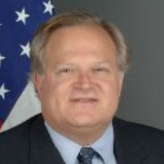- Overseas Refugee Assistance Program for near East and South Asia (19.519)
- Overseas Refugee Assistance Programs for Africa (19.517)
- Overseas Refugee Assistance Programs for East Asia (19.511)
- Overseas Refugee Assistance Programs for Europe (19.520)
- Overseas Refugee Assistance Programs for Strategic Global Priorities (19.522)
- Overseas Refugee Assistance Programs for Western Hemisphere (19.518)
- US Refugee Admissions Program (19.510)
- Office of the United Nations High Commissioner for Refugees
- International Red Cross
- UN Relief and Works Agency for Palestine Refugees in the Near East
- International Organization for Migration
- UN Children’s Fund
- UN Office for the Coordination of Humanitarian Affairs
- World Food Program
- UN Development Program
- Red Crescent
In FY 2007 PRM distributed refugee assistance funds to 48 NGO’s. The top six recipients were the International Rescue Committee, International Medical Corps, American Refugee Committee, Cooperative for Assistance and Relief Everywhere (CARE), Catholic Relief Services and the International Catholic Migration Commission.
Democrats Zero In On Another Nominee: Ability to Run Refugee Program Queried
(by Glenn Kessler, Washington Post)
- Table of Contents
- Overview
- History
- What it Does
- Where Does the Money Go
- Controversies
- Suggested Reforms
- Comments
- Leave a comment


The federal agency responsible for helping refugees around the world either through assistance to international and non-governmental organizations or by admitting them to the United States will soon have a new leader with years of experience at the Department of State. Anne C. Richard was nominated by President Obama on November 4, 2011, to be Assistant Secretary of State for Population, Refugees and Migration and confirmed by the Senate on March 29, 2012.

With refugee crises unfolding on every inhabited continent, the State Department Bureau of Population, Refugees and Migration has its work cut out for it. Bureau Director Eric P. Schwartz, who was confirmed June 19, 2009, has broad experience with humanitarian and refugee issues, especially as compared to his predecessor, Ellen Sauerbrey, whose experience in such matters was limited.
- Latest News
- D.C. Public Schools will Teach all Second-Graders to Ride a Bike
- New Rule in Germany Limits Sales of Sex-Themed E-Books to 10pm to 6am
- What Happened to the 6-Year-Old Tibetan Boy the Chinese Government Kidnapped 20 Years Ago?
- U.S. Ambassador to Turkey Photoshops his Hair Color to Mock Turkish Mayor
- Mystery Artist Calls Attention to Unfixed Potholes by Drawing Penises around Them
- Overseas Refugee Assistance Program for near East and South Asia (19.519)
- Overseas Refugee Assistance Programs for Africa (19.517)
- Overseas Refugee Assistance Programs for East Asia (19.511)
- Overseas Refugee Assistance Programs for Europe (19.520)
- Overseas Refugee Assistance Programs for Strategic Global Priorities (19.522)
- Overseas Refugee Assistance Programs for Western Hemisphere (19.518)
- US Refugee Admissions Program (19.510)
- Office of the United Nations High Commissioner for Refugees
- International Red Cross
- UN Relief and Works Agency for Palestine Refugees in the Near East
- International Organization for Migration
- UN Children’s Fund
- UN Office for the Coordination of Humanitarian Affairs
- World Food Program
- UN Development Program
- Red Crescent
In FY 2007 PRM distributed refugee assistance funds to 48 NGO’s. The top six recipients were the International Rescue Committee, International Medical Corps, American Refugee Committee, Cooperative for Assistance and Relief Everywhere (CARE), Catholic Relief Services and the International Catholic Migration Commission.
Democrats Zero In On Another Nominee: Ability to Run Refugee Program Queried
(by Glenn Kessler, Washington Post)
Comments


The federal agency responsible for helping refugees around the world either through assistance to international and non-governmental organizations or by admitting them to the United States will soon have a new leader with years of experience at the Department of State. Anne C. Richard was nominated by President Obama on November 4, 2011, to be Assistant Secretary of State for Population, Refugees and Migration and confirmed by the Senate on March 29, 2012.

With refugee crises unfolding on every inhabited continent, the State Department Bureau of Population, Refugees and Migration has its work cut out for it. Bureau Director Eric P. Schwartz, who was confirmed June 19, 2009, has broad experience with humanitarian and refugee issues, especially as compared to his predecessor, Ellen Sauerbrey, whose experience in such matters was limited.
- Latest News
- D.C. Public Schools will Teach all Second-Graders to Ride a Bike
- New Rule in Germany Limits Sales of Sex-Themed E-Books to 10pm to 6am
- What Happened to the 6-Year-Old Tibetan Boy the Chinese Government Kidnapped 20 Years Ago?
- U.S. Ambassador to Turkey Photoshops his Hair Color to Mock Turkish Mayor
- Mystery Artist Calls Attention to Unfixed Potholes by Drawing Penises around Them





Comments